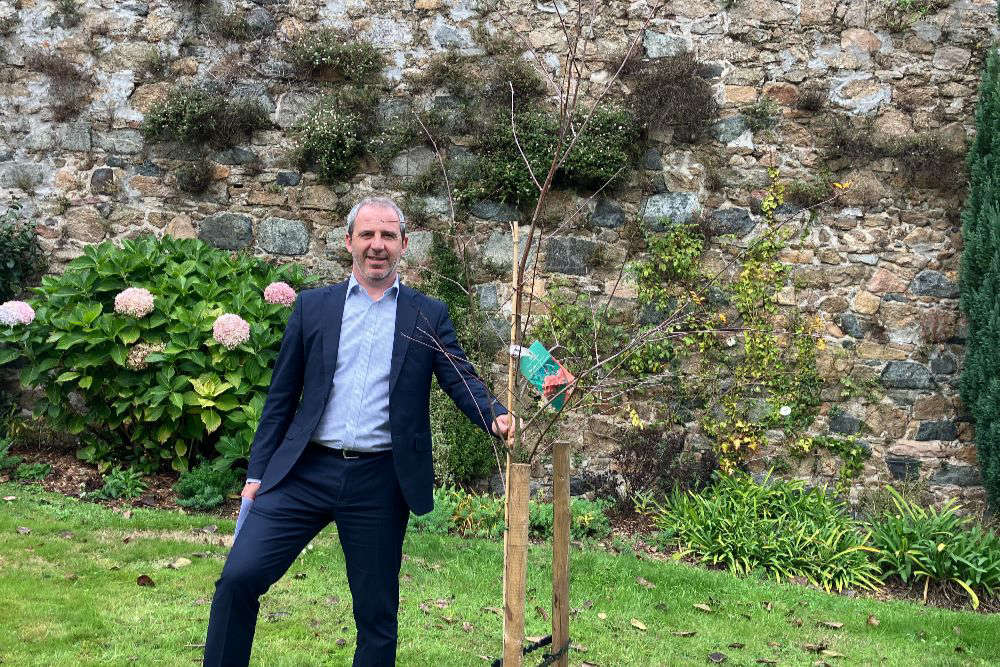Copyright ghanamma

Ghana’s vast Voltaian Basin will mark a new dawn for the country’s oil and gas industry, serving as a game changer for energy security, job creation, and economic transformation, the Chief Executive Officer of the Petroleum Commission has declared. Emefa Hardcastle told the Volta Economic Forum in Ho that government is accelerating efforts to attract investment into the basin, Ghana’s largest and only fully onshore petroleum reserve covering about 103,000 square kilometers, representing 40 percent of the country’s land mass. “The Voltaian Basin holds the key to Ghana’s oil and gas future. It is therefore imperative to accelerate exploration activities to establish its petroleum potential, and the government is committed to ensuring same,” she stated. The basin spans eight regions, including Volta, Eastern, Oti, Ashanti, Bono East, Savannah, Northern, and North East, but its petroleum potential has remained largely untapped since early Soviet geological work in the 1960s and 1970s. Under a renewed policy directive, the Petroleum Commission, the Ghana National Petroleum Corporation, and the Ministry of Energy have been tasked with attracting the needed investments to expand exploration, generate data, and accelerate drilling operations. The Ghana National Petroleum Corporation has already completed Phase 3 of its 2D seismic data acquisition, adding 1,655 line kilometers in 2021, and plans to drill two exploratory wells by the third quarter of 2026. Three new exploration and production licenses have also been issued to private operators to undertake drilling activities in the basin, signaling growing confidence in the area’s commercial viability. “Without exploration, without data, we cannot find oil and become commercial. The key thing for us then is to acquire data, to explore, and to drill, drill, drill,” Hardcastle emphasized at the forum themed “Harnessing the Volta Corridor Economic Potential for the 24 Hour Economy Take off.” She noted that successful exploration in the Voltaian Basin would significantly boost Ghana’s energy independence by reducing reliance on imported fuel while providing new revenue streams for the state through taxes and royalties. Beyond oil and gas, the basin’s development could stimulate growth in local infrastructure, small business participation, and industrial supply chains across the eight regions it covers. “There are substantial opportunities in the Volta Region which will offer benefits such as increased government revenues, job creation, SME development, and enhanced energy security by reducing reliance on imports,” she explained. However, Hardcastle cautioned that petroleum development also brings social and environmental challenges requiring careful management and proactive engagement with affected communities. She cited potential migration pressures, land use conflicts, and livelihood disruptions as areas demanding early engagement and coordinated policy responses from multiple government agencies. The Commission is already working with the Attorney General’s Department, the Ghana Revenue Authority, and the National Oil Company to review Ghana’s onshore petroleum policy and adopt best practices from other African countries with similar onshore operations. “We are reviewing the Ghana Government’s onshore policy to promote greater participation in governance and production, and to ensure wider access to the benefits derived from activities in the Voltaian Basin,” she added. The Petroleum Commission chief emphasized the importance of community engagement and securing social license to operate, ensuring inclusive development while avoiding the resource management pitfalls experienced in some other extractive regions across Africa. “We really do not want to learn the bad lessons that some of our neighbours have learnt with onshore exploration and production. We have to learn from best practice,” she said. Ghana’s offshore oil and gas industry, dominated by the Jubilee, TEN, and Sankofa fields, has generated billions of dollars in revenue since commercial production began in 2010, but operations remain expensive and technically complex. Developing onshore reserves in the Voltaian Basin could offer a more cost effective alternative while spreading the economic benefits of petroleum development to regions that have historically remained on the periphery of Ghana’s oil boom. The basin’s geological characteristics suggest it may contain significant hydrocarbon deposits, though the full extent won’t be known until extensive exploration and drilling campaigns are completed over the coming years. Industry analysts suggest successful development could position Ghana as a more significant regional energy player, potentially reducing West Africa’s dependence on imported refined petroleum products. The government’s renewed focus on the Voltaian Basin comes as global energy markets experience volatility and many African nations seek to maximize domestic resource development to reduce vulnerability to external supply shocks. Hardcastle called on Ghanaians, especially residents of the Volta Region, to support government’s drive to unlock the basin’s economic potential for national prosperity. “Following the drilling of the exploratory wells by GNPC next year, our investors will be invited to acquire rights to conduct exploration and production activities in several acreages within the basin. We need to support the government in executing its objective of attracting needed investment in the Voltaian Basin for our collective benefit,” she said. The Volta Economic Forum brought together policymakers, regional leaders, diplomats, and industry executives to explore opportunities within the Volta Economic Corridor, which forms a key pillar of Ghana’s 24 hour economy strategy. Regional leaders expressed optimism that petroleum development, combined with agricultural modernization and infrastructure improvements, could transform the Volta region from a largely rural area into an industrial and commercial hub. However, civil society groups have urged caution, emphasizing the need for robust environmental safeguards and transparent revenue management to ensure local communities benefit meaningfully from any oil and gas discoveries. The coming months will prove crucial as GNPC prepares to drill its first exploratory wells, a milestone that could either validate decades of geological speculation or require a fundamental reassessment of the basin’s commercial potential. For now, government officials remain bullish, framing the Voltaian Basin as the next frontier in Ghana’s energy story and a potential catalyst for broader economic transformation across the country’s northern and eastern regions. Whether the basin lives up to its billing as a game changer will depend on exploration results, policy implementation, and the government’s ability to balance development ambitions with environmental and social responsibilities.



